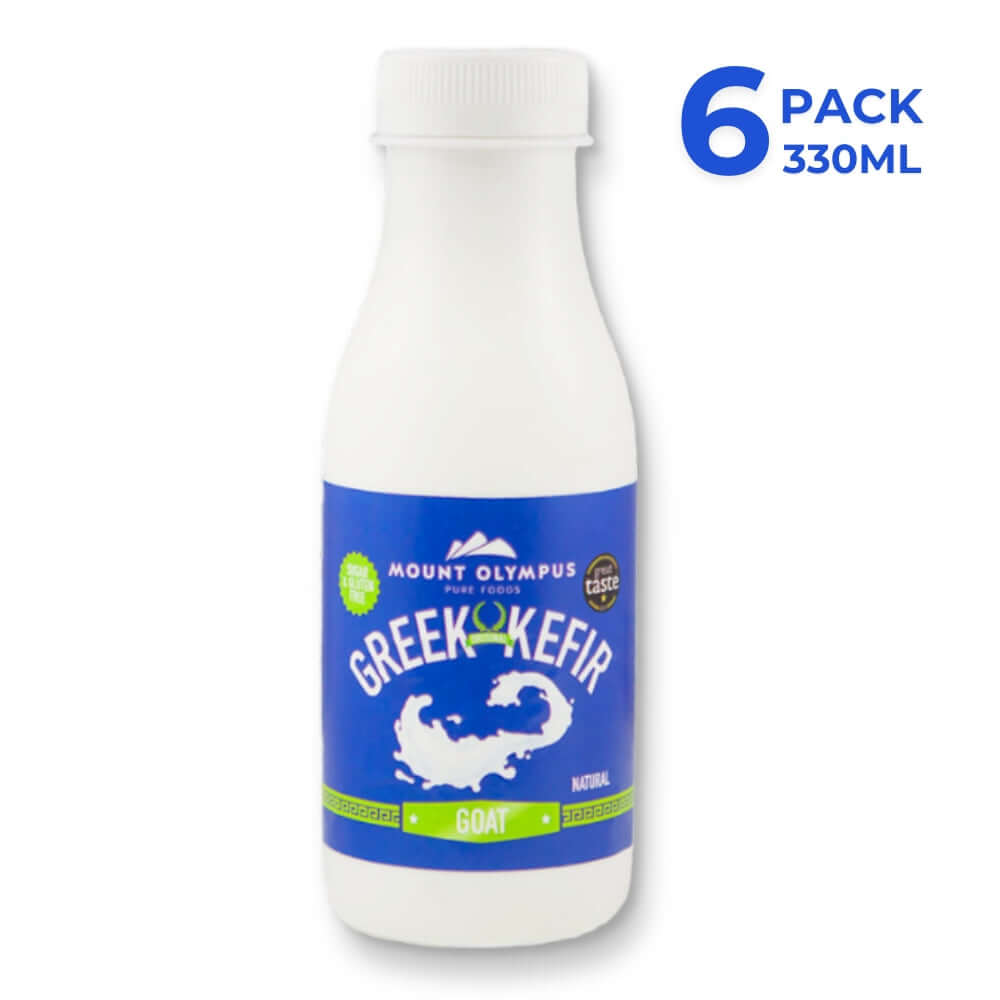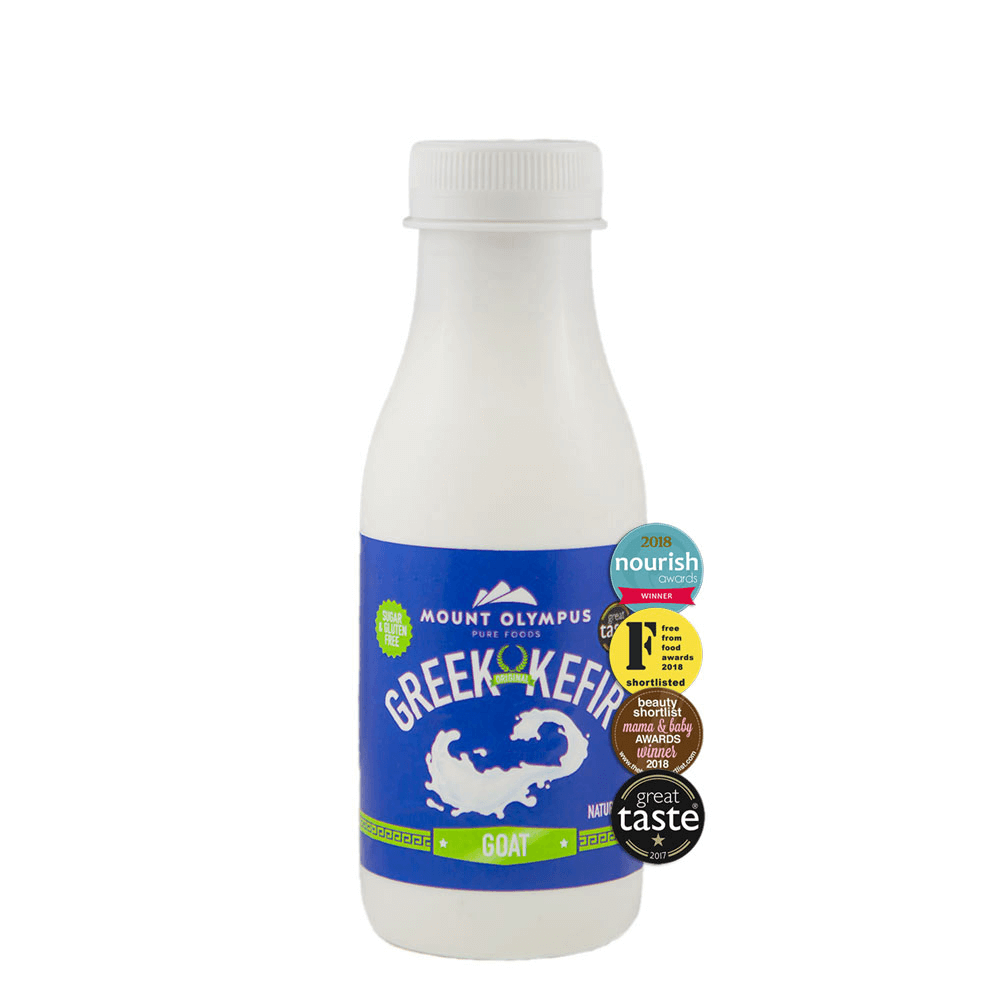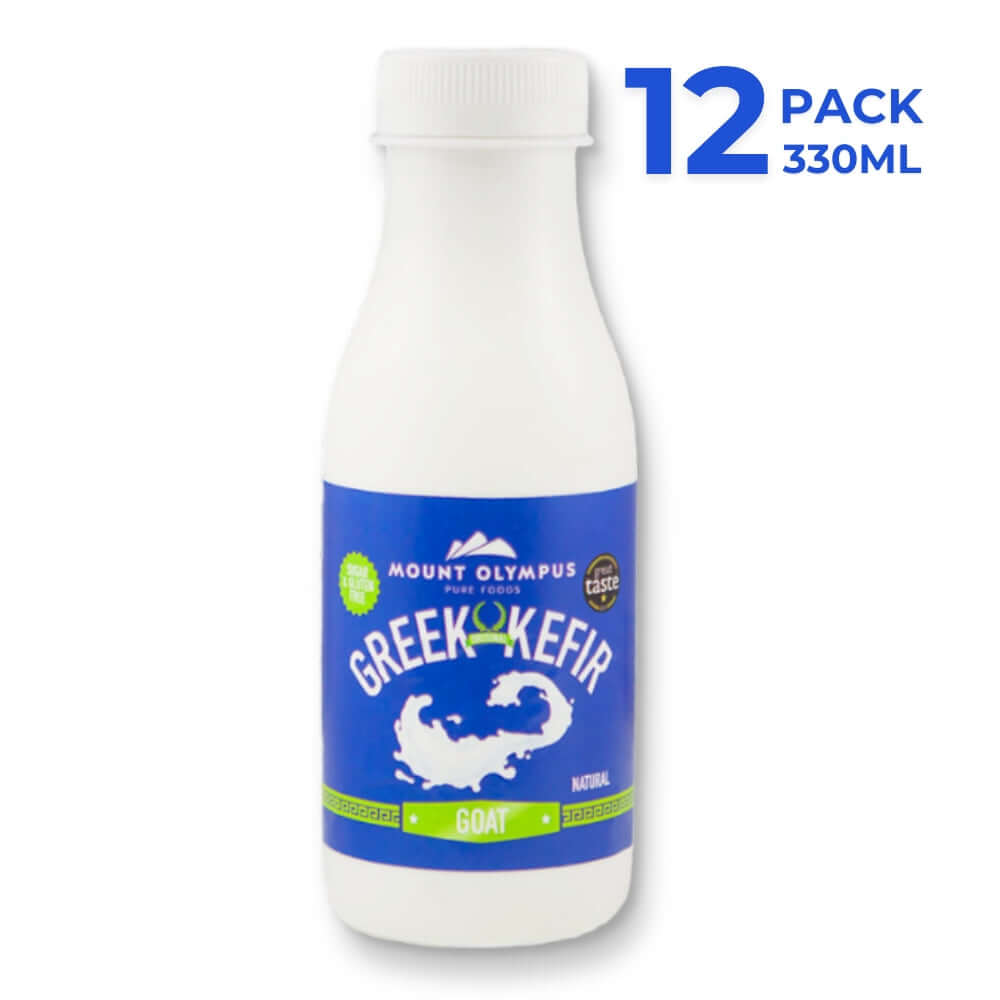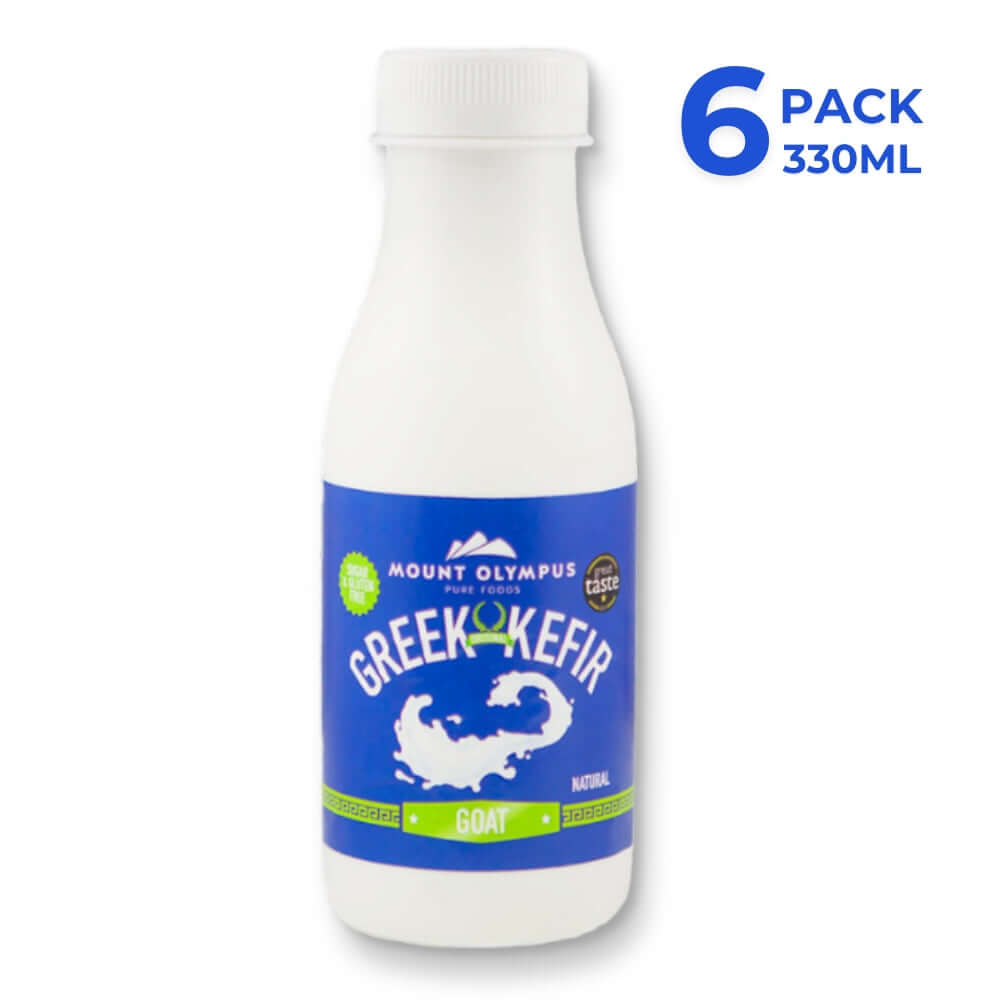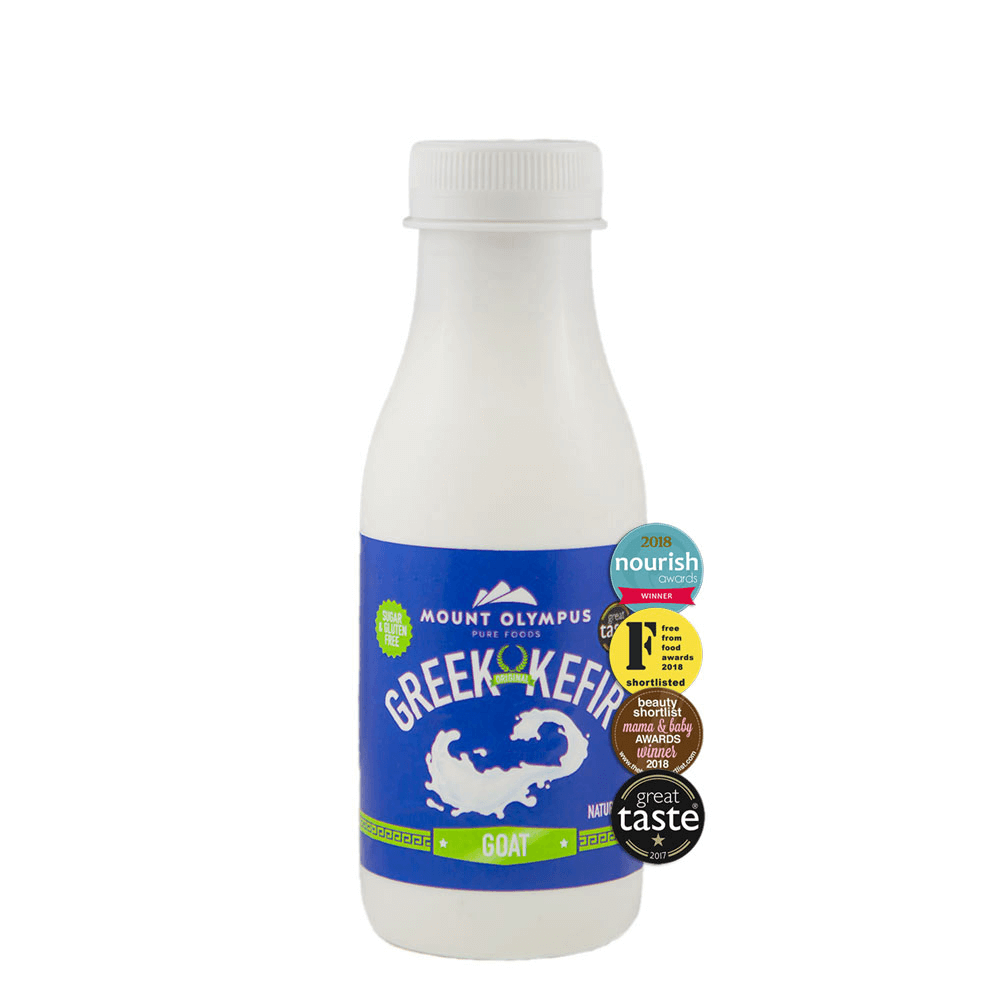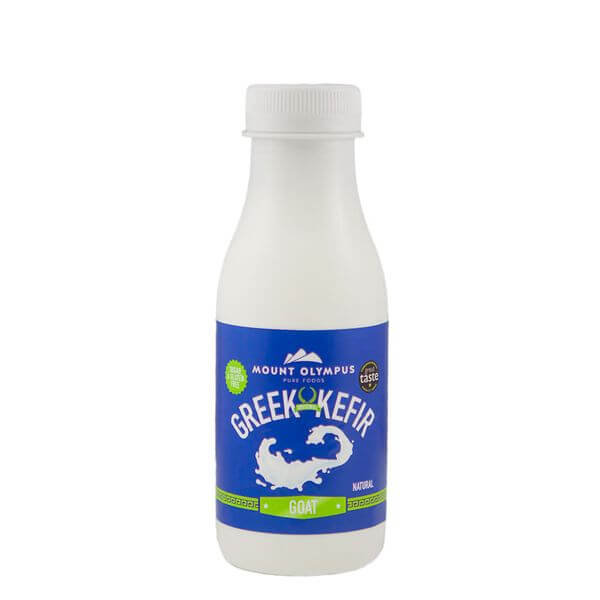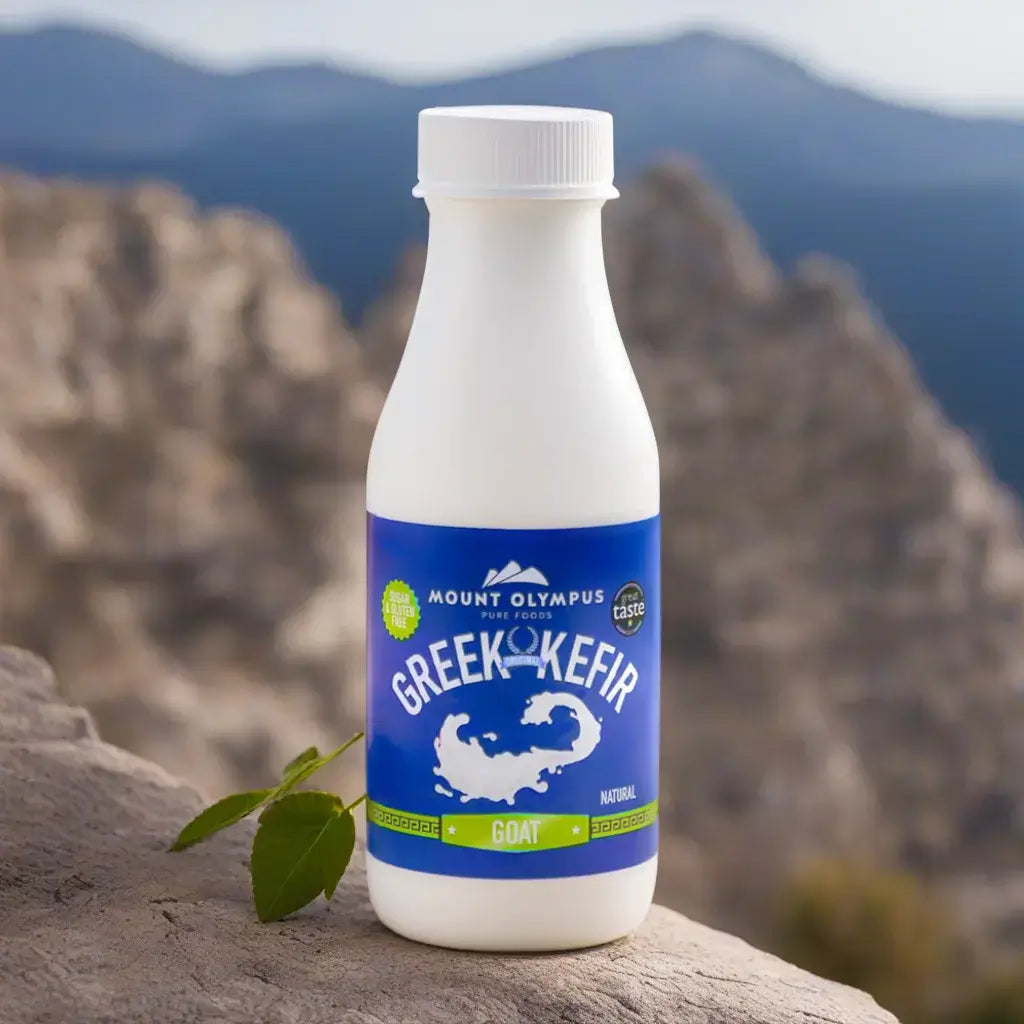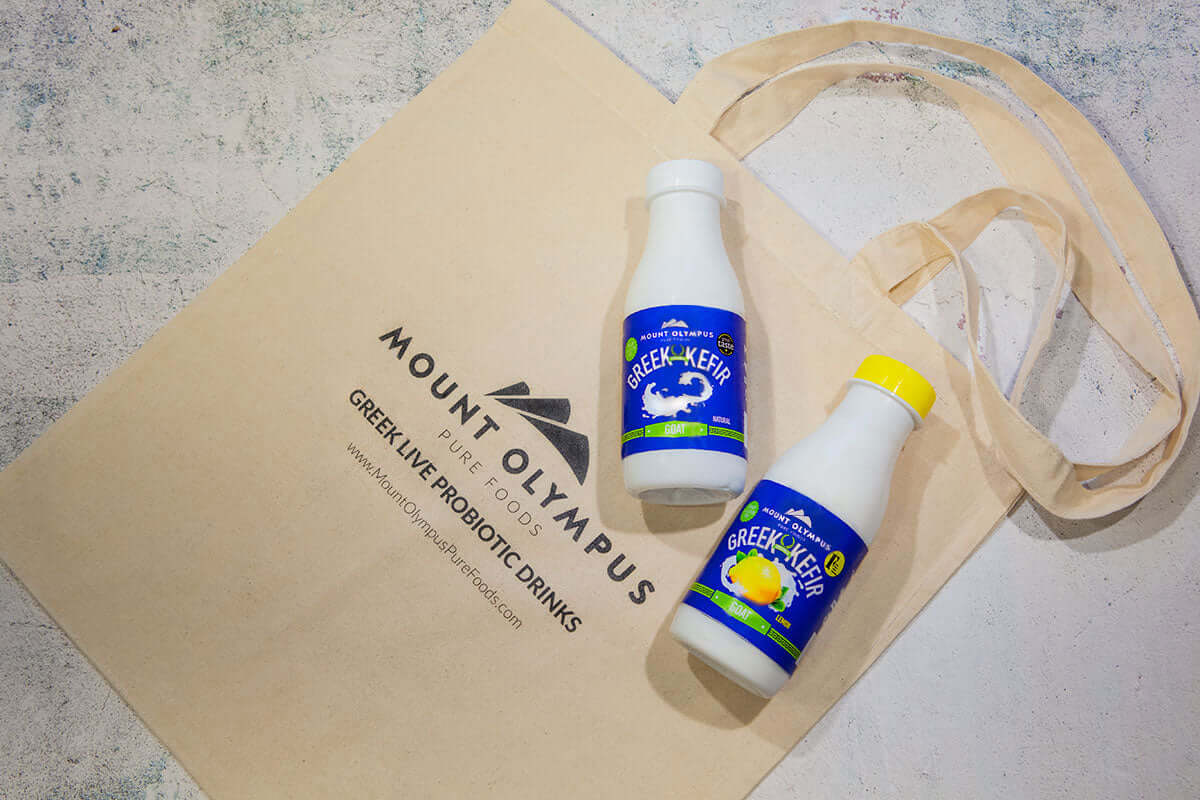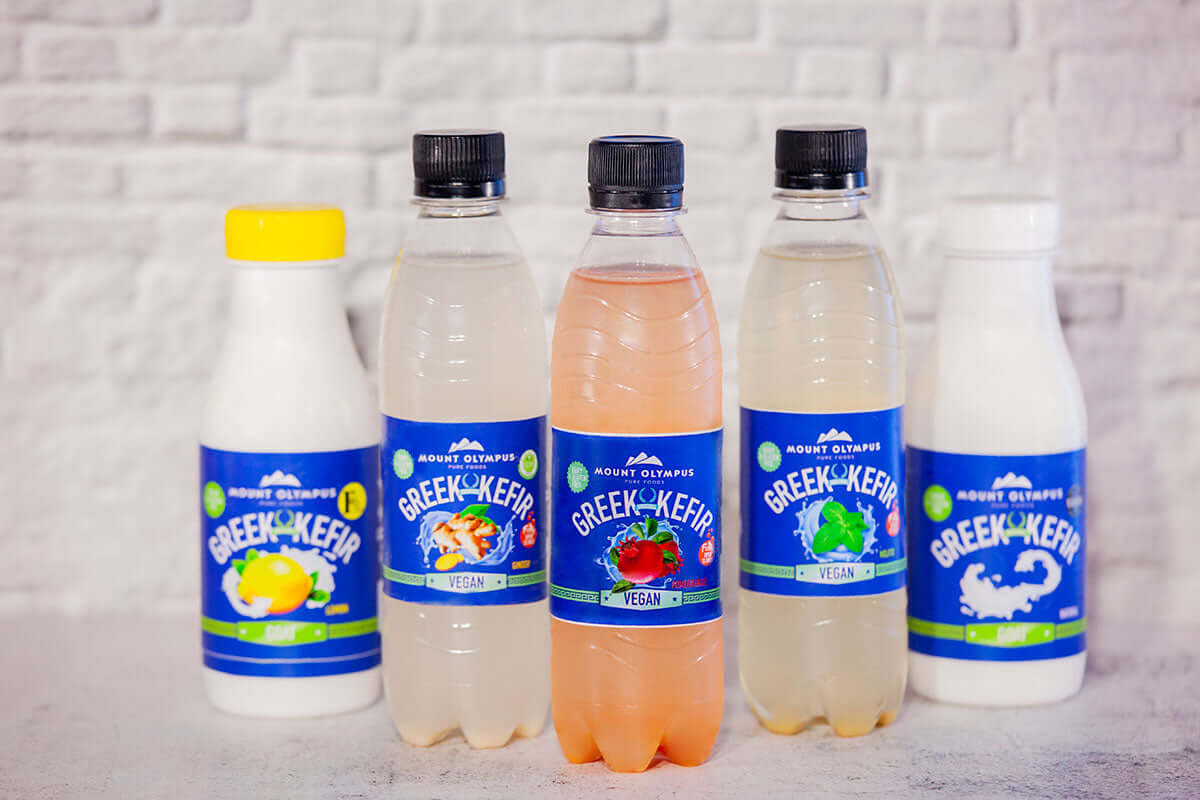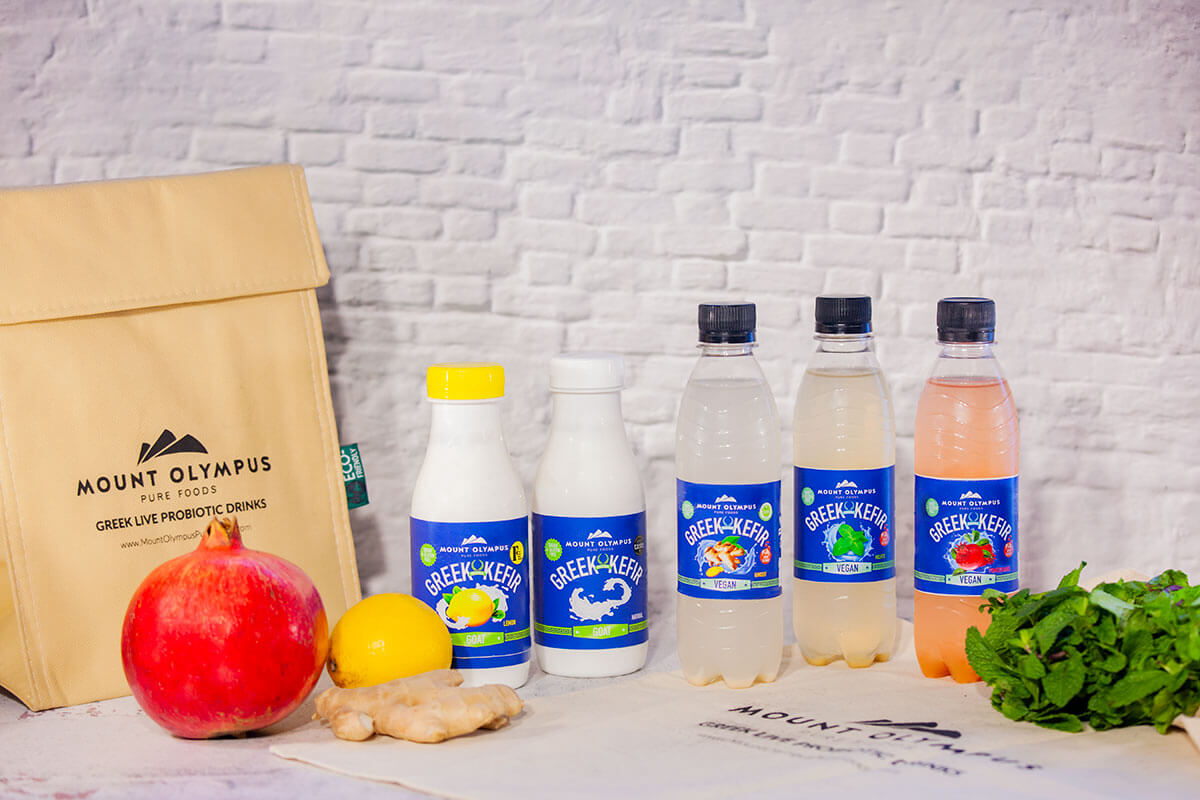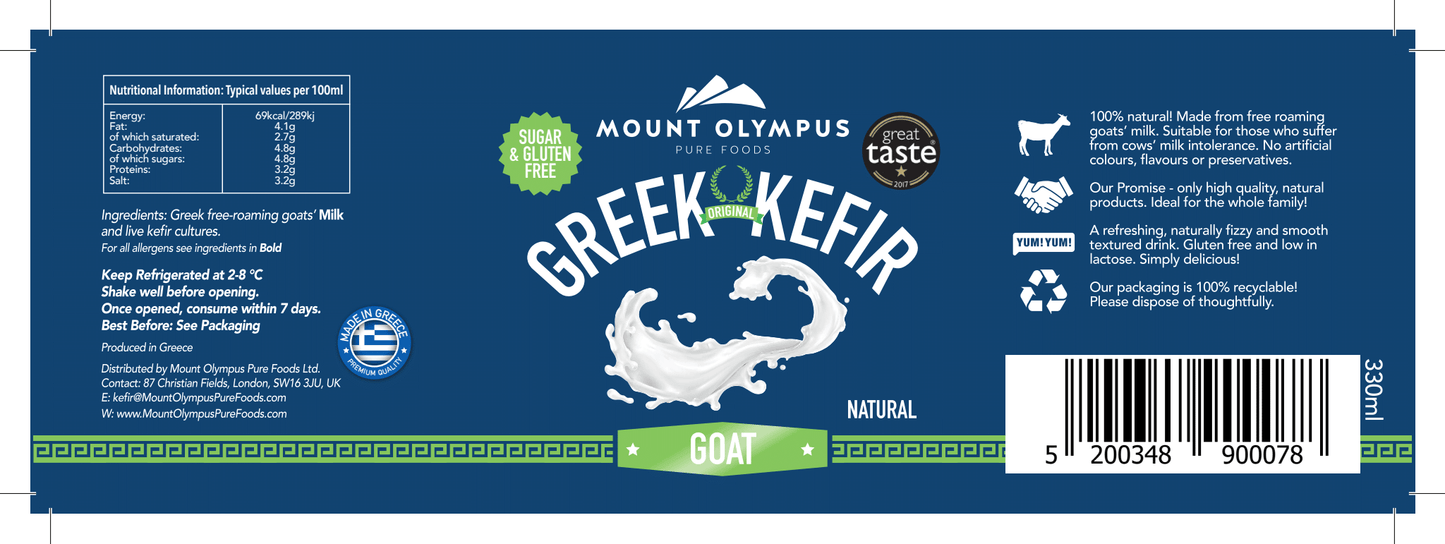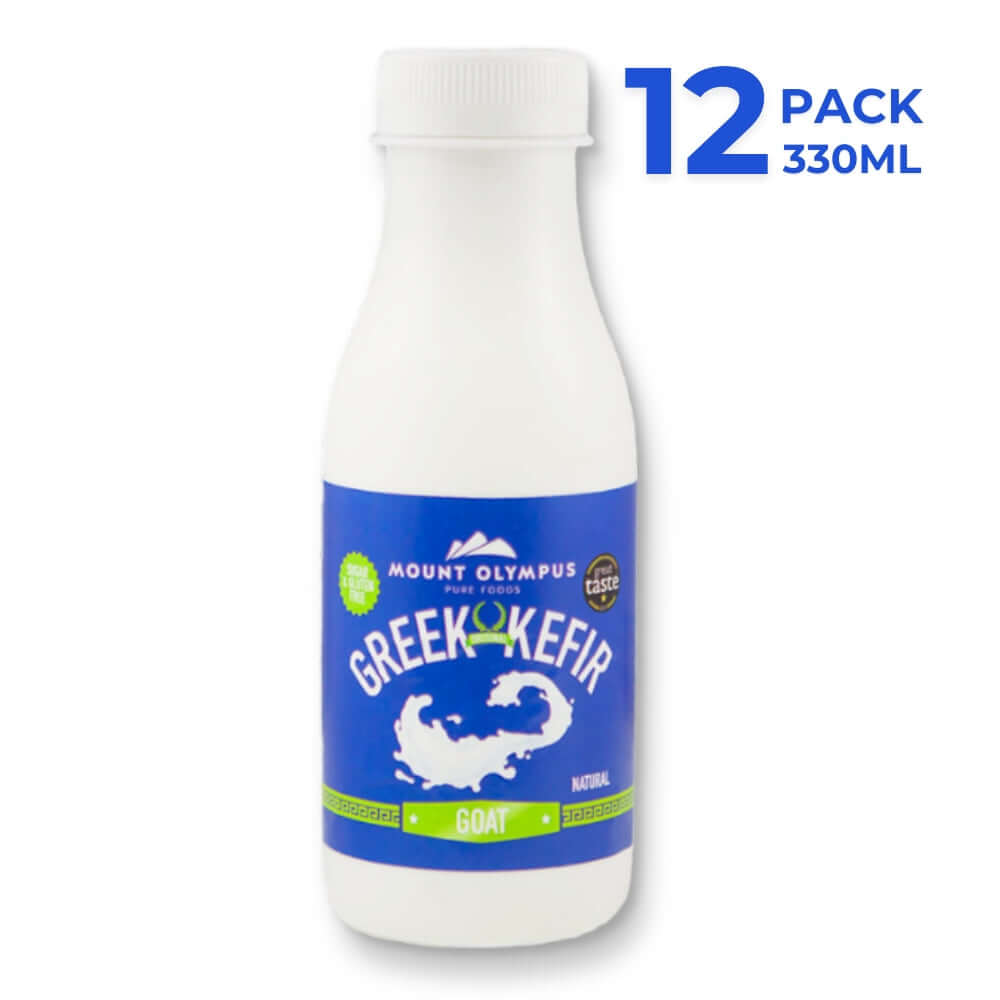Kefir and Female Health
Traditional kefir drinks made using kefir grains offer widespread benefits for overall health.
With new researching highlighting the advantages of beneficial gut bacteria supplementation during and after pregnancy as well as their role in alleviating common urogenital conditions, it’s time we shine some light on kefir for female health.
Urogenital conditions
Urogenital health may not be the most glamorous of topics, but it’s important that we pay attention to it. Thrush and cystitis, two of the most common urogenital ailments, are on the rise and with it increase the number of days where you may not be feeling your best.
Here is a brief overview of these common conditions:
Thrush– a fungal infection that results in itching, soreness, discharge and stinging, caused by the yeast Candida (1)
Cystitis – also termed urinary tract infection, or UTI for short, cystitis causes pain or stinging during urination, needing to pee often and cloudy or foul smelling urine. It is a bacterial infection most commonly associated with Escherichia coli (E. coli) (2).
How is our Mount Olympus Pure Foods Kefir different:
- It’s traditionally fermented for highest quality
- Batch tested to ensure billions of beneficial bacteria in each bottle
- Made by small scale and family farms in Greece not mass manufactured no added nasties
How can kefir help
Both e.coli and candida are opportunistic organisms that colonise when populations of beneficial bacteria are depleted. Each and every one of us is home to a microbiome, a collection of bacteria, yeasts and single cell organisms that support health. The majority of these organisms are located in the gut but they are also in the vaginal canal, mouth and skin (3). When populations of beneficial organisms are good, pathogens such as e.coli and candida can rarely grow enough to cause harm. Beneficial bacteria form a shield against invading organisms and have even been shown to enhance the immune system (4).
Sadly, beneficial organisms are sensitive so their populations may be depleted by periods of stress, a high sugar/ low fibre diet, toxins from alcohol and medications and this is when the UTI and thrush causing pathogens get in (5,6).
This is also when kefir may be useful. A daily dose of traditionally made kefir has been shown to boost the population of beneficial bacteria (7). The Mount Olympus range contains billions bacteria per bottle. We recommend starting your day on at least a 150ml (half a bottle).
The good news don’t just end there. Caprylic acid, a compound found in goat kefir, has even been show to halt the growth of thrush causing candida, making it easier to get rid of it (8).
Luckily, you don’t have to wait for a UTI or thrush to strike before reaching for the kefir. Studies indicate that beneficial bacteria, especially the lactobacillus species, offer a good preventative measure against urogenital conditions (9,10). Our kefir is full of lactobacilli, so it couldn’t be easier to equip yourself against these harmful organisms.
There is just one additional thing to note: both candida and e.coli love sugar, whereas beneficial bacteria prefer fibre so switching to a lower sugar, higher fibre diet would be advantageous (11,12).
Kefir in pregnancy
The microbiome during pregnancy influences the health of both the mother and baby (13). A healthy microbiome is thought to reduce risk of infections that may lead to preterm birth and may also help to lessen the incidence of gestational diabetes and preeclampsia (13). In addition, excess weight gain during pregnancy has been linked to certain bad organisms such as e.coli but not with beneficial bacteria such as lactobacillus and bifidobacteria (14).
During childbirth, the mother’s microbiome is passed onto the baby, directly influencing the child’s health (15). You can read more about the microbiome and it’s effects on child health here (link to kefir for kids article).
In a large Norwegian study, the consumption of cultured milk products such as kefir by pregnant women led to a reduced instance of childhood eczema and rhinoconjuctivitis for their babies (16). Other studies highlight the benefits of probiotic supplementation during pregnancy to the mother’s health (17).
We can’t promise miracles, but we can guarantee that each bottle of our kefir contains billions of beneficial organisms and there is convincing evidence that kefir consumption boosts the population of beneficial bacteria in the gut (7).
Disclaimer
The information in this article is not intended as medical advice so do consult your doctor about any concerning symptoms that you may be experiencing.
Courtesy of Eva Humphries, DipION, mBANT, CNHC is registered nutritional therapist, speaker, magazine columnist, demo chef and founder of the health and wellness site www.wholefoodwarrior.co.uk.
References
- Sobel JD (2016) Recurrent vulvovaginal candidiasis. American Journal of Obstetrics & Gynecology, 214: 15-21.
- Totsika M, Moriel DG, Idris A, Rogers BA, Wurpel DJ, Phan MD, Paterson DL, Schembri MA (2012) Uropathogenic Escherichia coli mediated urinary tract infection. Current Drug Targets, 13: 1386-1399.
- Muszer M, Noszczyńska M, Kasperkiewicz K, Skurnik M (2015) Human Microbiome: when a friend becomes an enemy. Archivum Immunologiae et Therapia Experimentalis, 63: 287-298.
- Bäumler AJ, Sperandio V (2016) Interactions between the microbiota and pathogenic bacteria in the gut. Nature, 535: 85-93.
- Sonnenburg ED, Sonnenburg JL (2014) Starving our microbial self: the deleterious consequences of a diet deficient in microbiota-accessible carbohydrates. Cell Metabolism, 20: 779-786.
- Konturek PC, Brzozowski T, Konturek SJ (2011) Stress and the gut: pathophysiology, clinical consequences, diagnostic approach and treatment options. Journal of Physiology and Pharmacology, 62: 591-599.
- Bourse BCT, Willing BP, Cotter PD (2016) The microbiota and health promoting characteristics of the fermented beverage kefir. Frontiers in Microbiology, doi:10.3389/fmicb.2016.00647.
- Jadhav A, Mortale S, Halbandge S, Jangid P, Patil R, Gade W, Kharat K, Karuppayil SM (2017) The dietary food components capric acid and caprylic acid inhibit virulence factors in candida albicans through m Journal of Medicinal Food, 20: 1083-1090.
- Abad CL, Safdar N (2009) The role of lactobacillus probiotics in the treatment or prevention of urogenital infections–a systematic review. Journal of Chemotherapy, 21(3):243-52.
- Shim YH, Lee SJ, Lee JW (2016) Antimicrobial activity of lactobacillus strains against uropathogens. Pediatrics International, 58(10):1009-1013.
- Sexton JA, Brown V, Johnston M (2007) Regulation of sugar transport and metabolism by the Candida albicans Rgt1 transcriptional repressor. Yeast, 24: 847-860.
- Escalante A, Salinas Cervantes A, Gosset G, Bolívar F (2012) Current knowledge of the Escherichia coli phosphoenolpyruvate-carbohydrate phosphotransferase system: peculiarities of regulation and impact on growth and product formation. Applied Microbiology and Biotechnology, 94: 1483-1494.
- Dunlop AL, Mulle JG, Ferranti EP, Edwards S, Dunn AB, Corwin EJ (2015) The maternal microbiome and pregnancy outcomes that impact infant health: a review. Advances in Neonatal Care, 15: 377-385.
- Santacruz A, Collado MC, García-Valdés L, Segura MT, Martín-Lagos JA, Anjos T, Martí-Romero M, Lopez RM, Florido J, Campoy C, Sanz Y (2010) Gut microbiota composition is associated with body weight, weight gain and biochemical parameters in pregnant women. British Journal of Nutrition, 104:83-92.
- Penders J, Thijs C, Vink C, Stelma FF, Snijders B, Kummeling I, van den Brandt PA, Stobberingh EE (2006) Factors influencing the composition of the intestinal microbiota in early infancy. Pediatrics, 118: 511-521.
- Bertelsen RJ, Brantsæter AL, Magnus MC, Haugen M, Myhre R, Jacobsson B, Longnecker MP, Meltzer HM, London SJ (2014) Probiotic milk consumption in pregnancy and infancy and subsequent childhood allergic diseases. The Journal of Allergy and Clinical Immunology, 133: 165-171.
- Gomez Arango LF1, Barrett HL, Callaway LK, Nitert MD (2015) Probiotics and pregnancy. Current Diabetes Reports, doi: 10.1007/s11892-014-0567-0.


